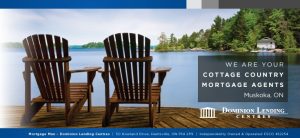 Financial Advice that Never Gets Old.
Financial Advice that Never Gets Old.
It’s difficult to find timeless advice in the ever-changing world of personal finance but these five are about as close as you can get.
1. Start small and start early with investing
Only around 5% of Canadians under 25 have a TFSA, which means 95% have already missed out on 7 years of compounded returns. Starting small could be as little as $100 month… and starting early means now! Invest what you can and don’t think a $100 monthly will never amount to anything.
Investing $100 month at 5% for 47 years (age 18 to 65) will give you $68,754 more than someone who did the same starting from age 25. Time really is money when it comes to compounded returns, so get started as soon as possible.
2. Make more or spend less?
Our advice is to do both, but there are limits on how much income you can generate and cutting back on expenses has a bigger impact on your bottom line. If you’re lucky, you may find some expenses you could easily do without, like that lightly used gym membership or seldom watched 200-channel cable package.
A part-time job or side hustle isn’t a bad idea, but you will spend more time working and less time enjoying life. Don’t forget that any extra income is fully taxable — you might need to earn $10 in order to get the same result as a $7 spending cut.
3. Re-evaluate your wants and needs.
A 1200 sq ft bungalow was the standard for most families in the early 1970’s. These days, houses are now over 2000 square feet on average and come with plenty of high-end finishes. Lifestyle creep is not limited to our housing needs and now influences what we drive, how often we eat out, and where we go for vacation. Being able to satisfy your wants later in life will only come from making smart spending decisions on your needs earlier in life and freeing up the cash to start saving and investing.
4. Understand credit and debt.
131 months! That’s how long it takes to pay off a $1000 credit balance paying the minimum amount — and it will cost you almost $1000 more in interest charges! Many people carry a credit card balance and are blissfully unaware of just how much it is costing them each month. Car loans are another area where the financing costs add up to a lot more than most people realize.
The key is to be knowledgeable about your debt. Track what you owe and how much that debt is costing you as well as any alternatives that may lower that cost. For example, refinancing your mortgage or drawing on home equity to pay off higher interest loans or credit cards.
5. Get financially literate.
Managing your money has become more difficult as we have a lot more spending, saving, and investing options, but we also have access to a lot more information and tools to help us. For example, diving into the real impact of those investment fees on your mutual funds (it’s a lot!) can easily be investigated online in just a few minutes.
For powerful personal finance education and training with immediate results, check out the complimentary livestreams each week from Enriched Academy. View the schedule and sign up for upcoming sessions on their events page.
Published by the DLC Marketing Team

